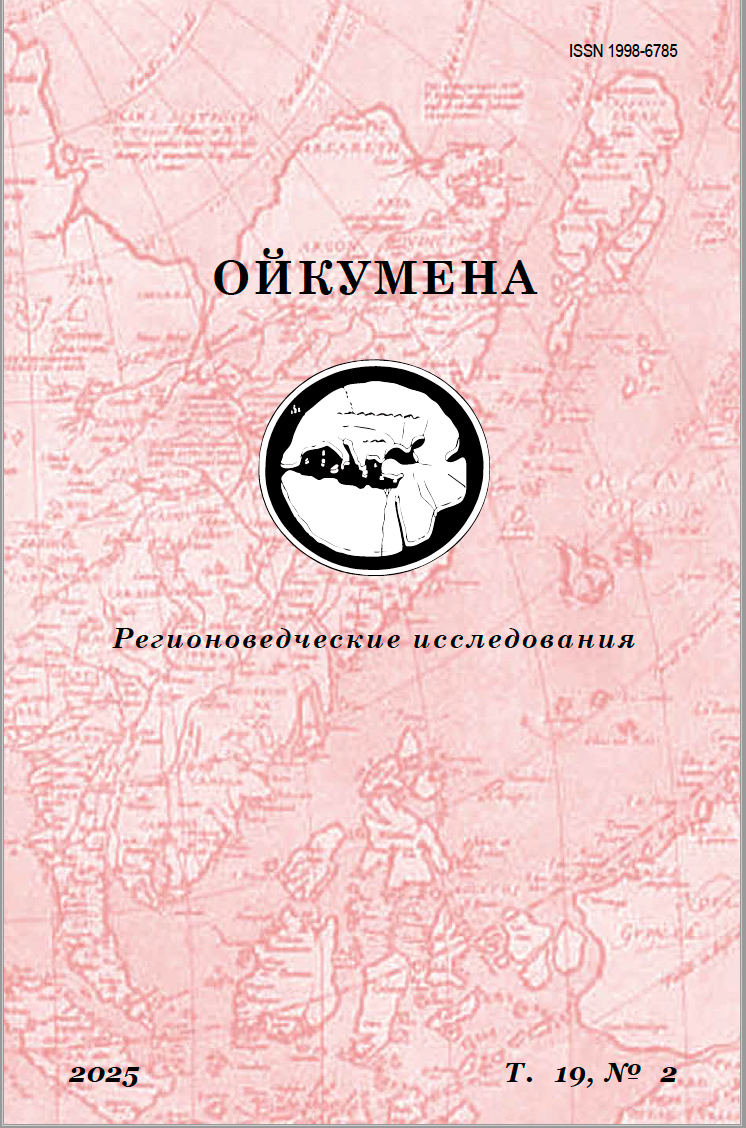employee
Moscow, Russian Federation
The DPRK is one of the few countries that has consequently followed the socialist path of development after the collapse of the socialist bloc. The construction of a "powerful and prosperous country" is carried out under the slogans of independence, protection of sovereignty, national dignity, and the fight against imperialism, which reflect the foundations of the national ideology of "Kimilsungism-Kimjongilism", or the Juche ideas. Patriotism is the supporting structure of spiritual and moral education in the DPRK, aimed at complete execution of the instructions of the leader and the ruling party "at the cost of life." At different stages of North Korean statehood, different terms were used to denote the concept of patriotic education, such as "socialist patriotism", "Kimjongil patriotism", while the common element remained the leader, loyalty to whom is defined as the highest form of patriotism. The motherland is impossible without a leader, and, therefore, loyalty to the leader is loyalty to the motherland. From an early age, citizens of the DPRK are brought up to be ready to sacrifice their lives at any time at the call of the leader and the governing party. The theoretical justification for the dominance of extreme forms of patriotism is the Juche concept of the Korean revolution. This study is aimed to determine the functional ties between national ideology, patriotism and mass movements in the DPRK.
patriotism, DPRK, Juche, socialism, Kimilsungism–Kimjongilism, mass movement, ideology
1. Great Leadership that Brought about a Radical Change in Education // United Korea – Information and Analytical Portal, January 14, 2022. URL: https://onekorea.ru/2022/01/14/velikoe-rukovodstvoprivedshee-k-korennomu-perelomu-v-obrazovanii/ (accessed 25.10.2024). (In Russ.).
2. Zhebin A. Z. Evolution of the political system of the DPRK in the context of global changes. Moscow, 2006. 214 p. (In Russ.). EDN: https://elibrary.ru/QOGHCJ
3. Kim Il Sung. Let the Youth Be Loyal to the Leadership of the Party and Successfully Accomplish the Work of Our Revolution. Letter to the 8th Congress of the Union of Socialist Working Youth of Korea 22.02.1993. Moscow, 2007. 12 p. (In Russ.).
4. Kim Jong Il. The Democratic People's Republic of Korea is a Juche-oriented socialist state with invincible might. Interview given to the party newspaper Rodong Sinmun and the government's press organ Minju Choson on September 5, 2008 (Juche 97). Society for Friendship and Development of Cooperation with Foreign Countries. Moscow, 2009. 32 p. (In Russ.).
5. Kim Jong Il. On some issues of education on the Juche ideas. Pyongyang, 1987. 32 p. (In Russ.).
6. Kim Jong Il. Let the workers become loyal servants of the people, selflessly working for the benefit of the people. Society for Friendship and Development of Cooperation with Foreign Countries. Moscow, 2010. 12 p. (In Russ.).
7. Kim Jong Il. Respecting the older generation of the revolution is a high moral duty of revolutionaries. Interview given to the Rodong Sinmun newspaper, the organ of the Central Committee of the Workers' Party of Korea, on 25.12.1995. Society for Friendship and Cooperation with Foreign Countries. Moscow, 2024. 32 p. (In Russ.).
8. Kim Jong Il. The Juche philosophy is a unique philosophy of revolution. Interview with the theoretical journal of the Central Committee of the Workers' Party of Korea, Kyllochja, July 26, 1996, Pyongyang, 1997. 19 p. (In Russ.).
9. Kim Jong-Un Sent a Message to Participants of the 5th Meeting of the Pioneers of Three Revolutions // United Korea – Information and Analytical Portal, November 22, 2021. URL: https://onekorea.ru/2021/11/22/kim-chen-yn-napravil-poslanie-uchastnikam-v-sleta-peredovikov-trex-revolyucij/ (accessed 25.10.2024). (In Russ.).
10. Kim Jong Un. Let us implement Kim Jong-il's patriotism to accelerate the process of building a rich and powerful homeland. Conversation with responsible officials of the Central Committee of the Workers' Party of Korea, 26.07.2012 (101st year of Juche). Society for Friendship and Cooperation with Foreign Countries. Moscow, 2014. 22 p. (In Russ.).
11. Maltseva O. P. Some features of the strategic policy of Kim Jong-Un. // Social Studies and Humanities. 2017. No. 1 (3). P. 41–47. htpp://doi.org/10.18413/2408-932X-2017-3-1-41-47 (In Russ.). EDN: https://elibrary.ru/YZQWWT
12. Mishina T. Kim Jong-Un is Determined to Improve the Lives of the People // Rossiyskaya Gazeta, 09.04.2024. URL: https://rg.ru/2024/04/09/reg-dfo/kim-chen-yn-polon-reshimosti-uluchshit-zhiznnaroda.html (accessed 25.10.2024). (In Russ.). DOI: https://doi.org/10.9790/0853-2310080409
13. San Gang Wu Chang (Three Foundations and Five Constancies) // Electronic library of the Institute of Philosophy of the Russian Academy of Sciences: New philosophical encyclopedia. URL: https://iphlib. ru/library/collection/newphilenc/document/HASH01f008050690bbc32cf2ffef (accessed 24.08.2024). (In Russ.).
14. North Korea Encyclopedia (2021) // North Korea Information Portal. URL: https://nkinfo.unikorea. go.kr/nkp/knwldg/view/knwldg.do;jsessionid=dFNazVWNrPo_h3uKEVdTOlZl2931ijGnFQyOIvHv.ins12?menuId=NK_KNWLDG_DICARY&knwldgNo=46 (accessed 25.10.2024). (In Kor.)
15. The Three Great Revolutions Red Flag Movement // National Unification High School. URL: https://www.uniedu.go.kr/uniedu/home/brd/bbsatcl/nknow/view.do?id=46054&mid=SM00001155 (accessed 25.10.2024). (In Kor.).
16. Beautiful Rural Villages Rise Again // Rodong Sinmun, 2024.9. URL: http://www.rodong.rep.kp/ko/index.php?MTJAMjAyNC0wOC0wOUAzQDVAQDBANjE== (accessed 25.10.2024). (In Kor.).
17. The Power of Patriotism and the Power of Unity are Driving Forces for Comprehensive National Revival // Rodong Sinmun, 2024.8.12. URL: http://www.rodong.rep.kp/ko/index.php?MTJAMjAyNC0wOC0xMi1OMDAxQDExQDBA7JWg6rWt7KO87J2YQDBAMQ== (accessed 25.10.2024). (In Kor.).
18. Our Country First // Rodong Sinmun, 2024.7.5. URL: http://www.rodong.rep.kp/ko/index.php?MTJAMjAyNC0wNy0wNS1OMDA2QDExQDBA7JWg6rWt7KO87J2YQDBAMTE== (accessed 25.10.2024). (In Kor.).
19. Oil Picture "Patriotic Soul" // Rodong Sinmun, 2024.08.04. URL: http://rodong.rep.kp/ko/index.php?OEAyMDI0LTA4LTA0LU4wMjFANUBAQDFANA== (accessed 25.10.2024). (In Kor.).
20. Jeong Go Eun. The Origin and Transformation of North Korean Patriotism. Master’s Thesis, University of North Korean Studies, 2016. (In Kor.).
21. The Secret of Making a Leap Forward in Local Education // Rodong Sinmun, 2024.1.19. URL: http://www.rodong.rep.kp/ko/index.php?MTJAMjAyNC0wMS0xOS1OMDIzQDExQDBA66qo67KU6rWQ7JyhQDBANQ== (accessed 25.10.2024). (In Kor.).
22. Cha Seung Joo. Mass movement in education under regime of Jong Un Kim in North Korea // Unification and Peace. 2016. No. 8 (1). P. 79–108. (In Kor.)
23. Cha Seung Joo. Comparative study on the major values and virtues of moral studies in South and North Korea: focusing on patriotism // Global Studies Education. 2019. No. (3). P. 3–27. (In Kor.).











